In today's digital age, protecting personal information is more important than ever, and the unfortunate reality is that data breaches can happen to anyone. If you've recently experienced a data breach, crafting a clear and informative notification letter is crucial to keep your recipients informed and reassured. This letter not only serves as a formal announcement but also provides guidance on the next steps individuals should take to safeguard their information. Ready to learn how to create an effective data breach notification letter? Read on to discover our easy-to-follow template!
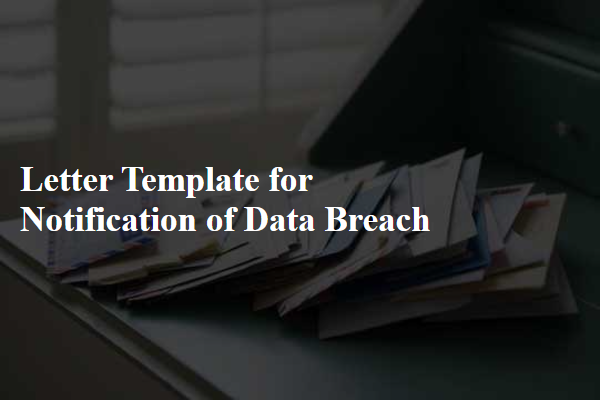
Incident Description and Discovery
In early October 2023, a significant data breach was detected within the secure servers of a prominent financial institution, resulting in unauthorized access to sensitive customer information. The incident was discovered during routine network monitoring, which revealed unusual activity patterns, including a spike in failed login attempts and anomalous data transfers. Cybersecurity teams identified compromised encryption protocols originally implemented in 2021, leading to the exposure of personally identifiable information (PII), including names, addresses, Social Security numbers, and financial account details of approximately 50,000 customers. Immediate containment measures were enacted, including isolating affected systems and initiating a comprehensive forensic investigation to assess the extent of the breach and secure vulnerable entry points.
Impacted Data Types and Scope
A data breach can significantly compromise sensitive information, affecting individuals and organizations. Commonly impacted data types often include personal identifiable information (PII), such as names, addresses, Social Security numbers, and financial details like credit card information. Depending on the scope (geographical reach, number of affected individuals), the breach may involve tens of thousands of records or even millions, as seen in high-profile incidents like the Equifax breach in 2017, which exposed the data of approximately 147 million people. Organizations must take immediate action to notify affected individuals and regulatory authorities, detailing the specific types of data compromised, the timeline of the breach (including when it was detected), and the potential risks such as identity theft and financial fraud. Key measures, including identity protection services or credit monitoring, should be offered to mitigate the consequences of the breach.
Steps Taken to Secure Data
In response to the recent data breach incident at XYZ Corporation, immediate actions have been implemented to enhance data security measures across all departments. A thorough assessment by cybersecurity experts, such as those from CyberSafe Consulting, has been initiated to identify vulnerabilities within our systems. Access controls have been reinforced, minimizing unnecessary permissions to sensitive information, impacting over 300 employees. Additionally, encryption protocols have been upgraded to AES-256 standards, safeguarding data in transit and at rest. Employee training sessions focusing on cybersecurity awareness began on October 1, 2023, aiming to educate staff about potential phishing attacks and social engineering tactics. Regular security audits will now be conducted quarterly to maintain robust protection. Incident response plans have been revised to encompass immediate reporting channels, ensuring swift action during future incidents, thereby enhancing our resilience against potential breaches.
Recommendations for User Protection
In the event of a data breach, organizations must take proactive measures to ensure user protection, such as implementing multi-factor authentication (MFA) systems that enhance security by requiring multiple forms of verification. Customers should consider regularly updating passwords, ideally every 60 to 90 days, and utilizing complex combinations that include upper and lower case letters, numbers, and special symbols. It is crucial to monitor account statements and transactions diligently for unauthorized activity, especially on financial accounts, as prompt reporting can mitigate potential losses. Additionally, users can benefit from enabling alerts for significant account changes and unfamiliar login attempts, which can serve as early warning signs of unauthorized access. Providing identity theft protection services can also aid users in managing their personal information, ensuring they remain vigilant against future threats.
Contact Information for Assistance
In the event of a data breach, notifying affected individuals promptly is crucial. Individuals may require assistance regarding the breach. Affected parties should be provided with reliable contact information for support, including dedicated phone numbers and email addresses. Specific departments, such as customer service or data protection offices, can offer guidance. Resources must be accessible via multiple channels, ensuring individuals can receive timely responses about their personal information's security status. Implementing a clear communication strategy fosters trust and transparency during this critical period of information vulnerability.

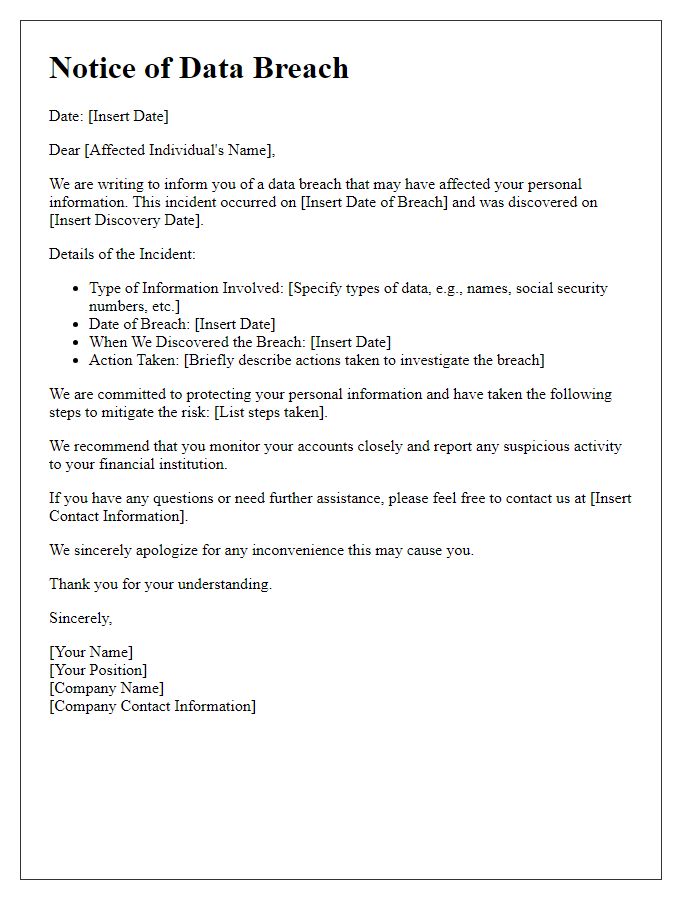
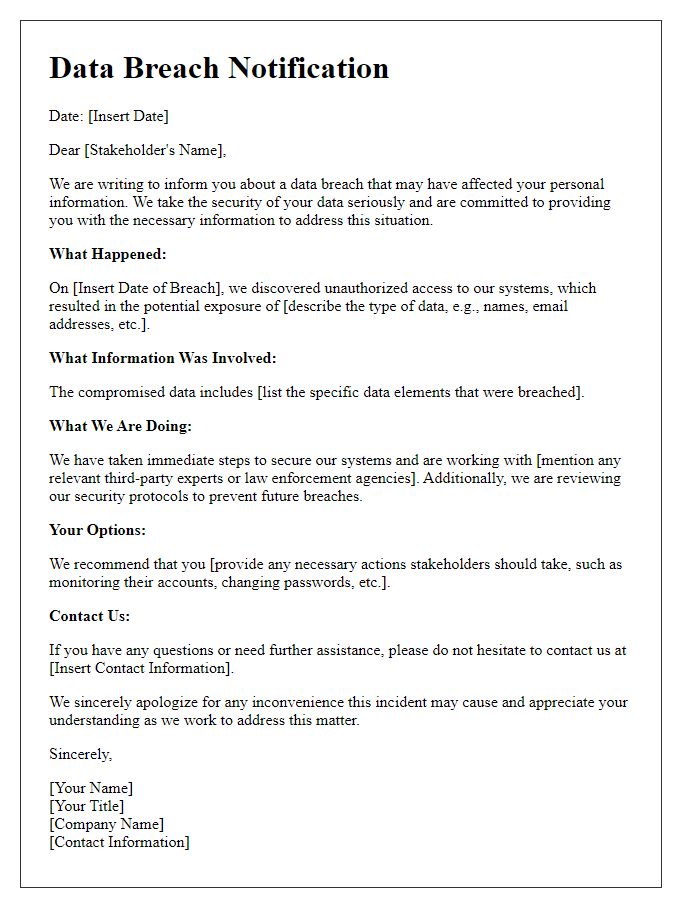
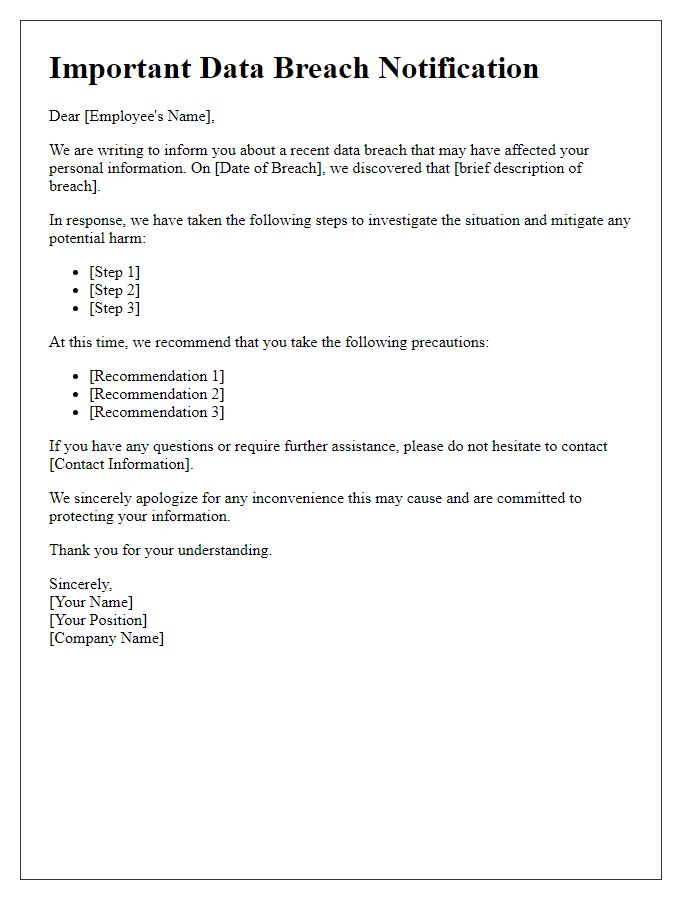
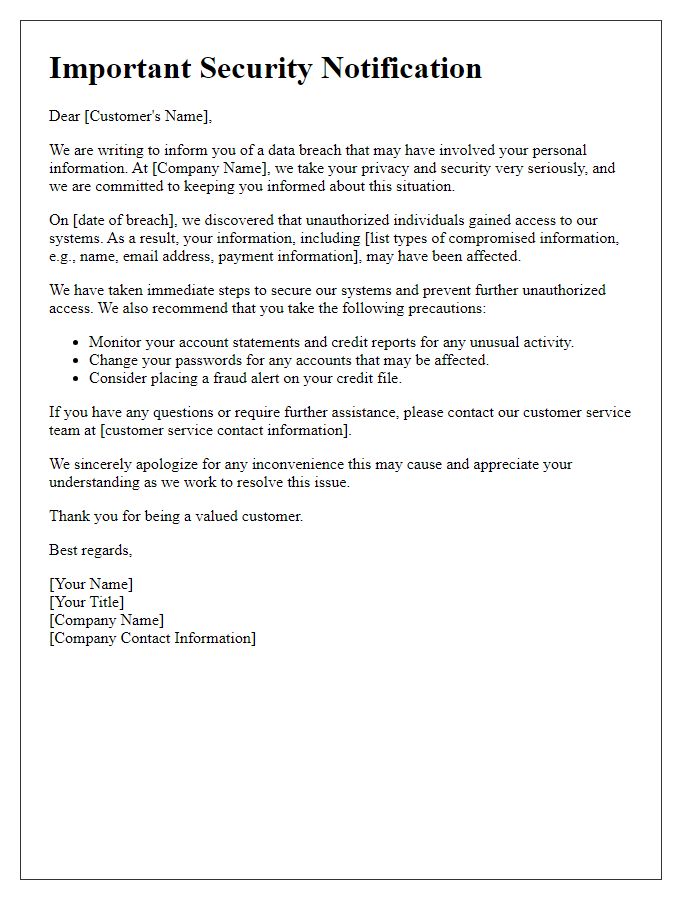
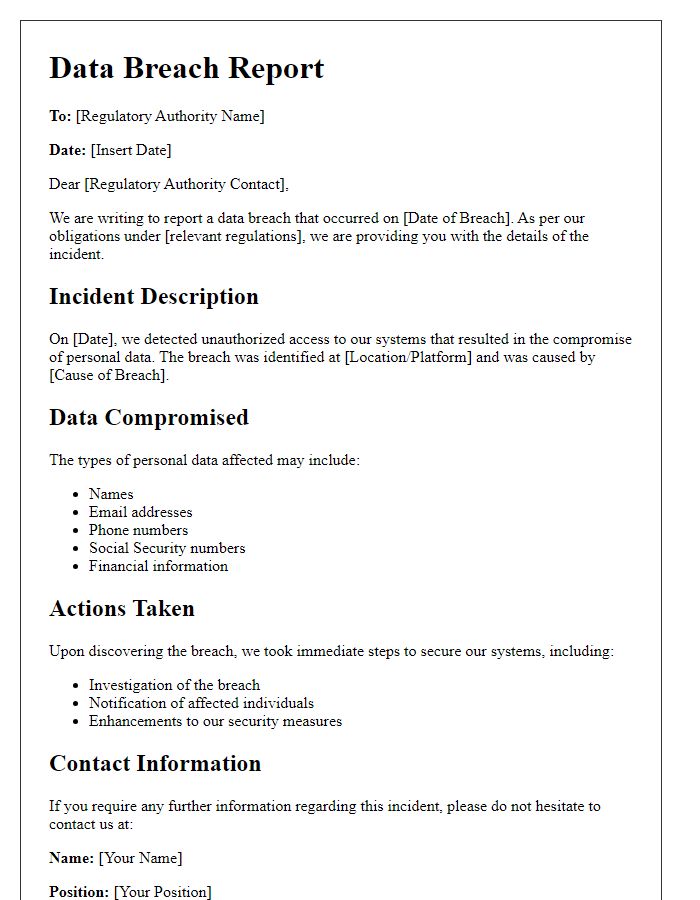
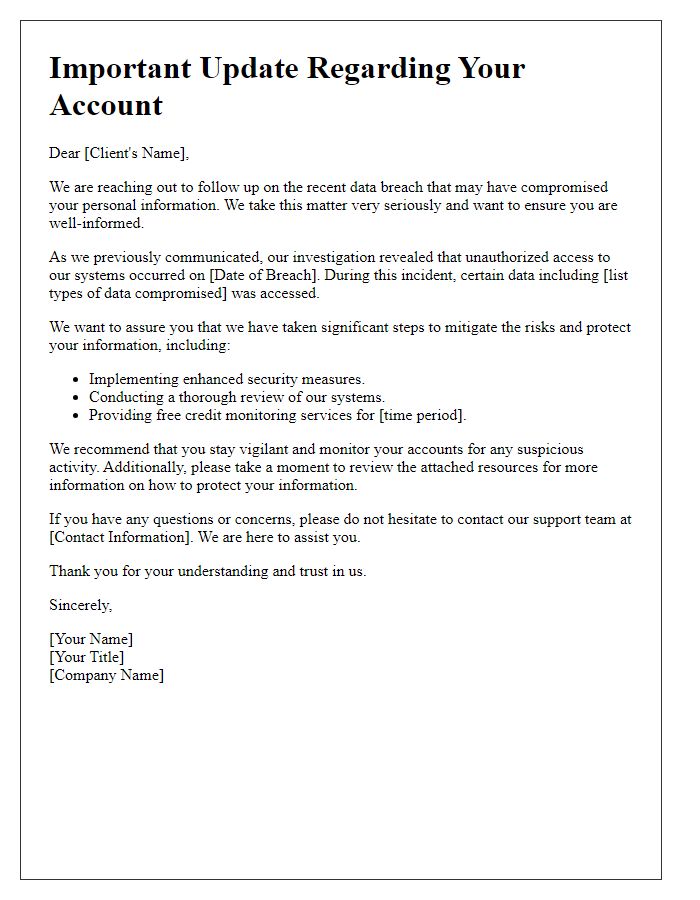
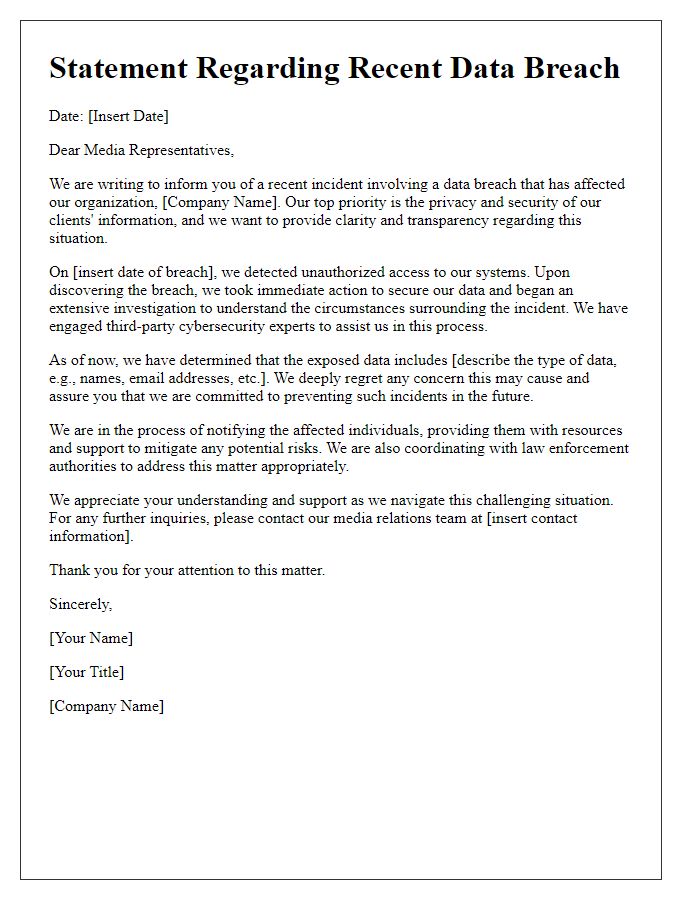
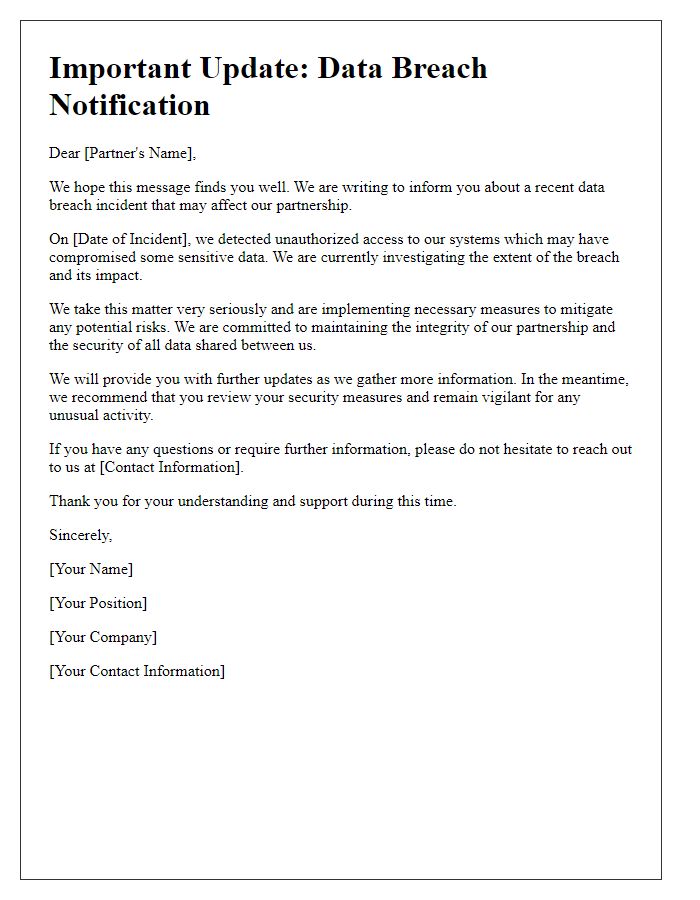
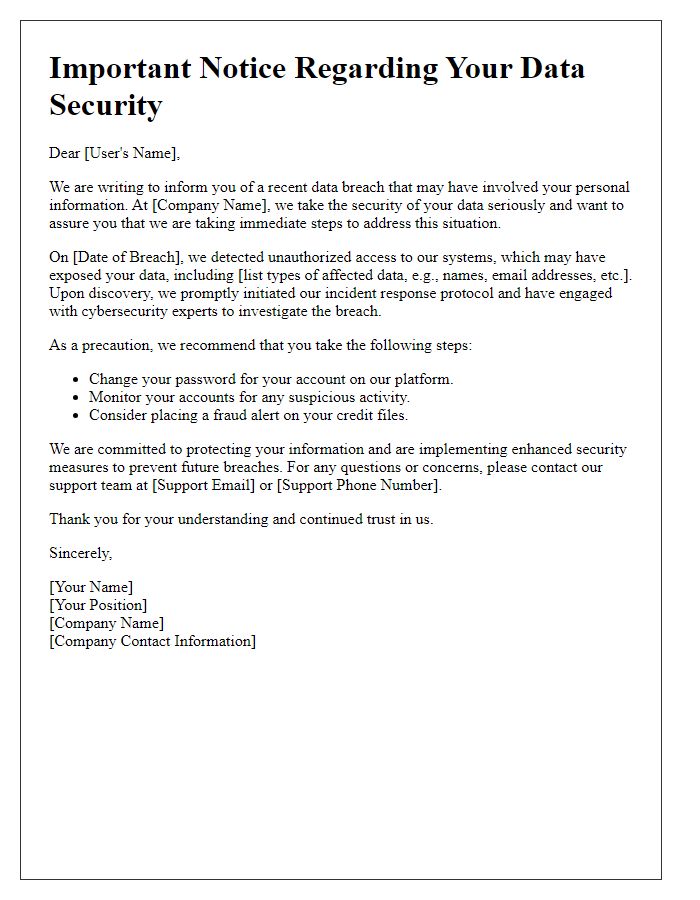
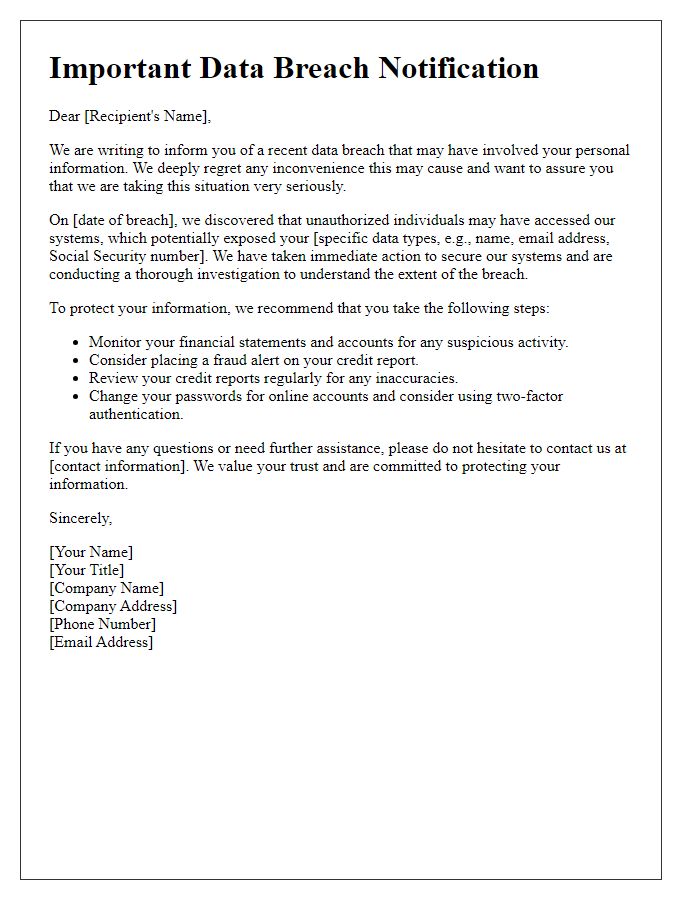


Comments